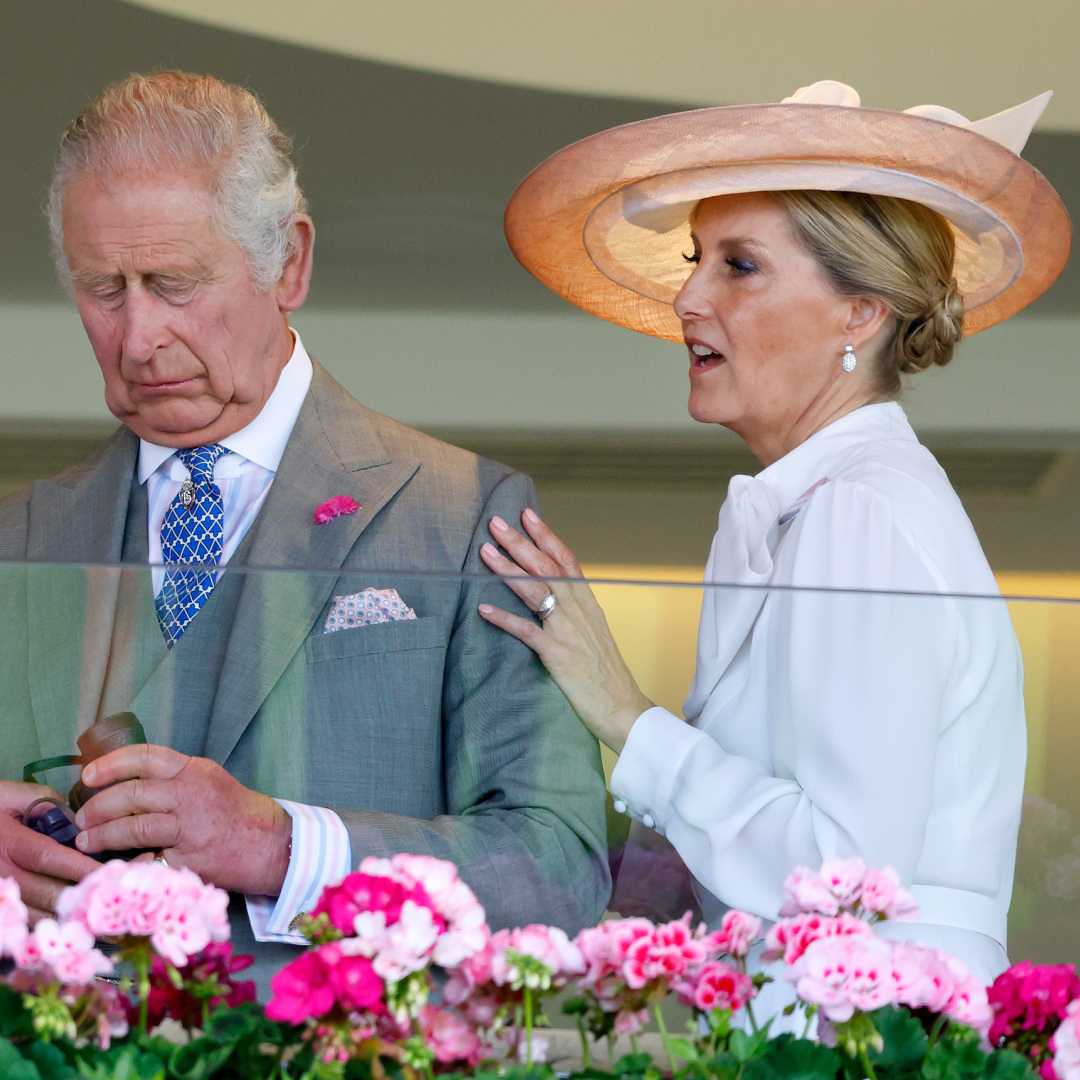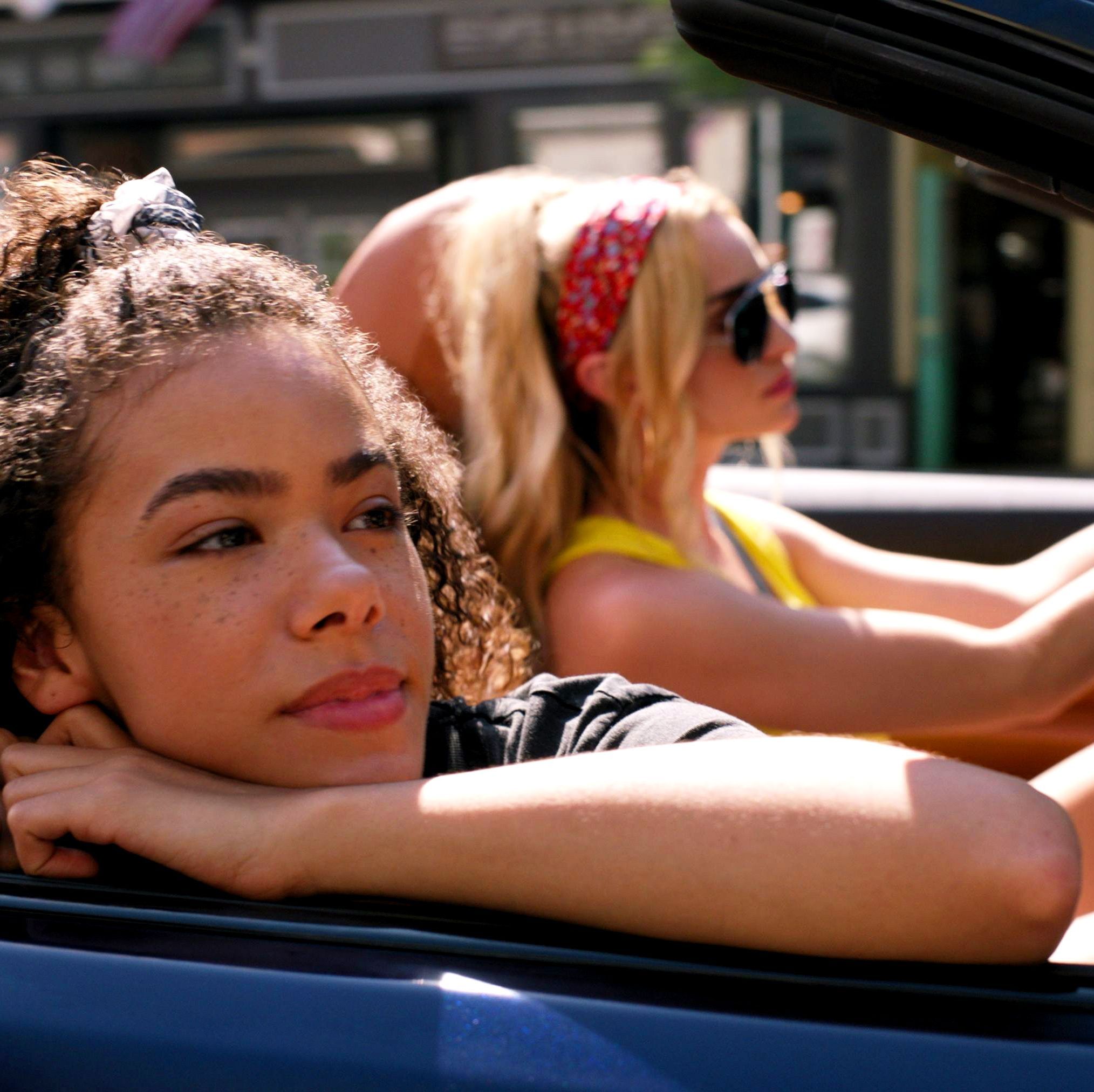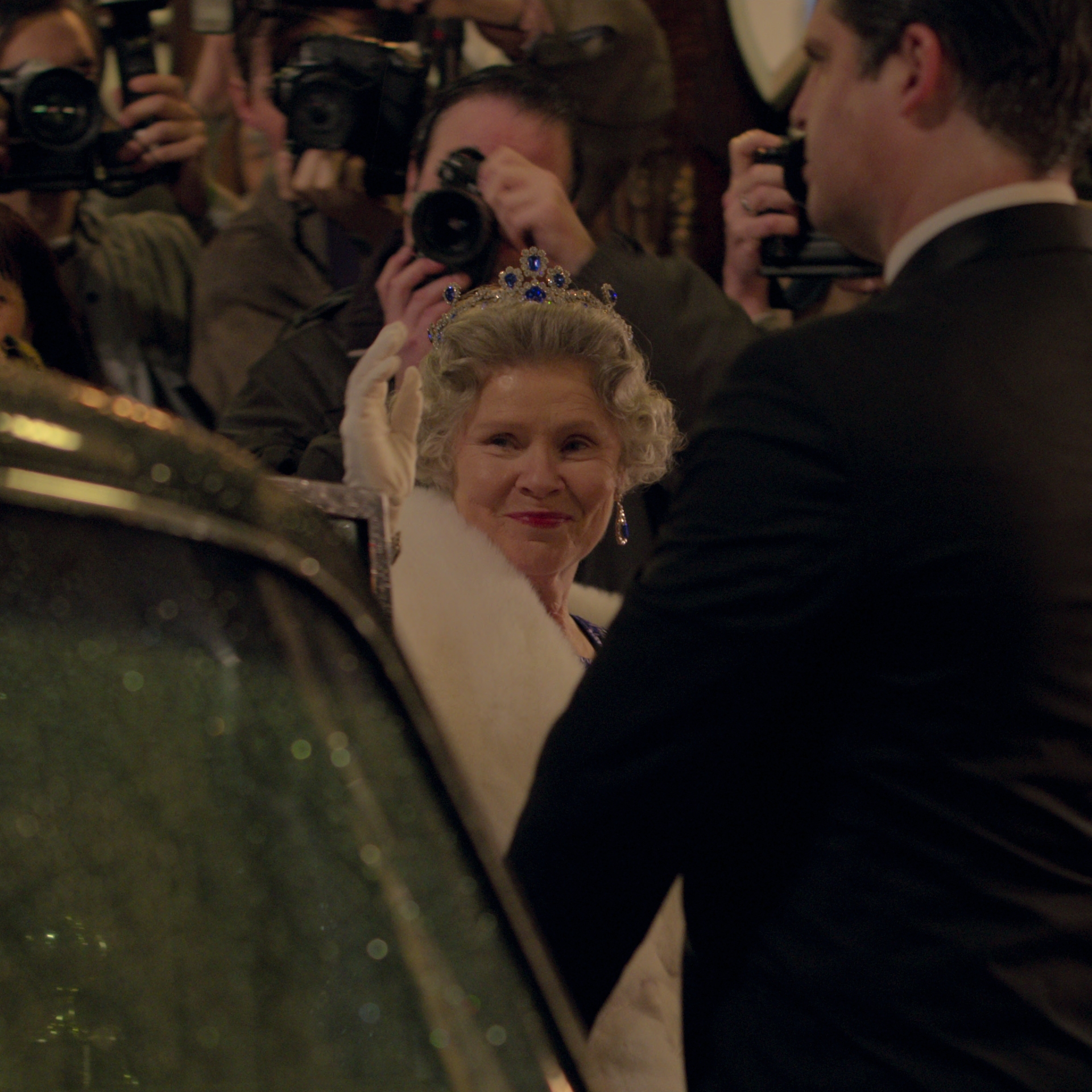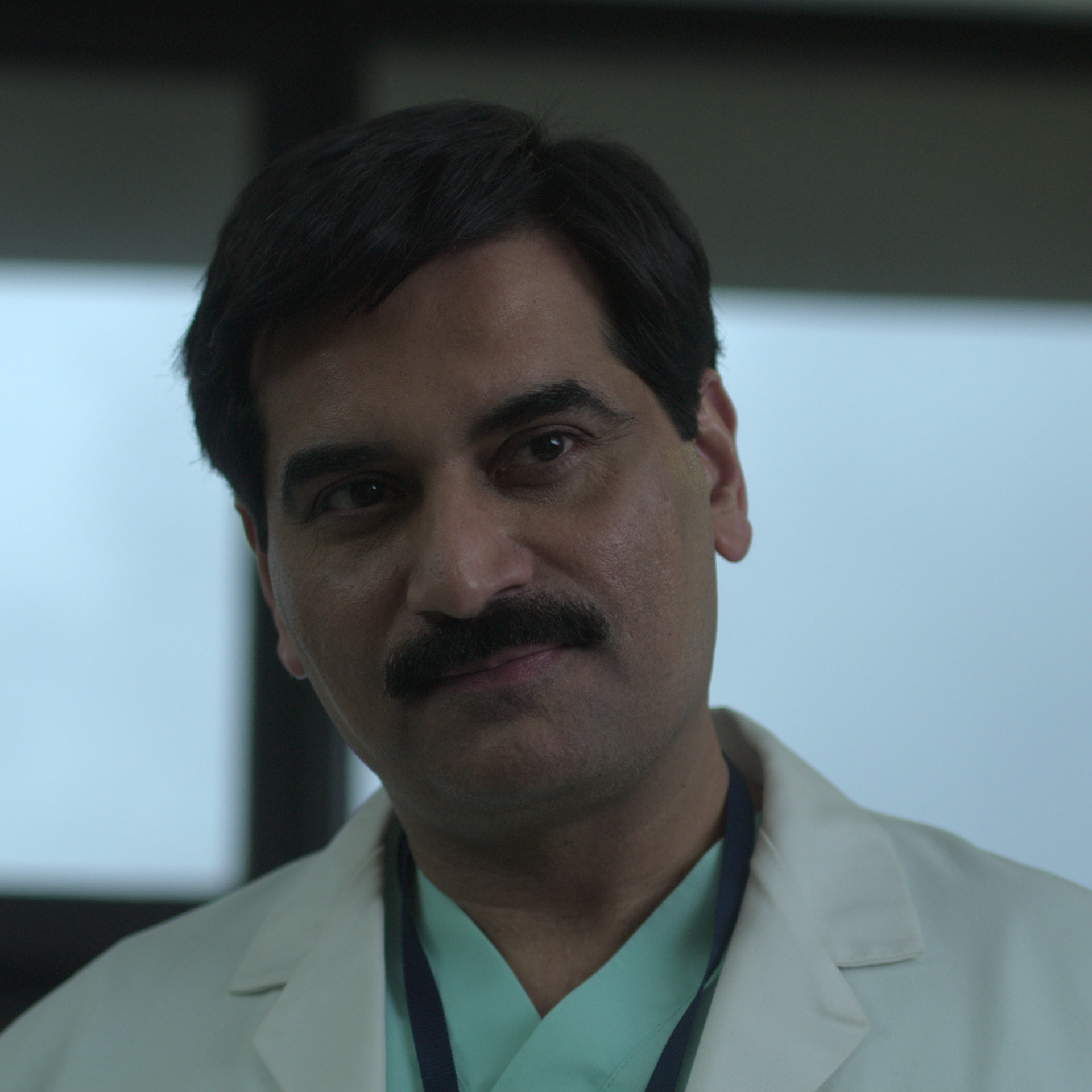The Butterfly Effect
I realized that I would be in Gaza on New Year 's Eve, a place that is besieged, destroyed, and I doubted there will be much celebration on that evening.
Preserving a Sense of Self in Times of War
The butterfly effect is a metaphor for the concept that small, seemingly insignificant events—like the fluttering of a butterfly's wings—can produce tremendous and unanticipated consequences. In this blog, Zainab Salbi, the founder of the humanitarian group Women for Women International, explores the often untapped and under-appreciated capacity of women around the world to cause major and lasting change for good.
Read Zainab's previous blog post here.
Living in New York city, one finds no shortage of yoga studios, Pilates, and frequent talk about self improvement, be it through meditation, therapy, retreats, self-cleansing, and so on and so forth. Not only am I interested in all of that, the majority of my friends are part of that world—the world of yoga, meditation, and all kinds of other retreats for self improvement. I spent the last 10 years going from one retreat to another, from one yoga class to another, all in an attempt to find inner peace, to explore my self fully, and achieve my Zen stage. But I often wonder how easy it is to hold on to that sense of self and peace and tranquility when the world around you is not peaceful or calm, but rather is chanting a different mantra. How easy is it to hold on to that Zen stage if one is living in a place where electricity is on and of every few hours, where there are gun shots, bomb explosions, or the arrival of another oppressor? I lost it in my first day of the trip, and I am left wondering how much of my Zen is impacted by the fact that I live in a stable country. Where will I be, who will I be, and how will I behave if I lived in a country where one feels a constant struggle against the current just to survive? How much will I be able to hold on to myself when the reality is so different?
You see this whole thinking process started when I was sitting at the kitchen table of my family's house in Iraq, when my uncle was flipping through some old papers from my grandfather's business. One of my cousins found it as she was cleaning her library and brought it to him. I suggested to him that he may want to create an organized library to archive all the papers we have from my grandfather. I was engrossed with the details of how he could do it when he looked at me and he said "We ARE living on the margins of life Zainab. Who cares about organizing anything when everything is collapsing everyday in front of you?" I went quiet. He is right, I thought. I can't even keep my yoga practice when I am in Iraq because I feel like it is too unstable for anything stable. Who am I to suggest this organized library ordeal?
Over the days, the question consumed me and the challenge kept on presenting itself every single day. One day, when I was crossing the road from the wrong side, a policeman walked up to me and said "Next time you do that, I will empty this whole machine gun on you." I was silent for a few seconds, then looked at him and said "Go ahead. See if I care." I don't know if was because I was still holding on to my years of meditation that day or if I was starting to feel the sadness of seeing my country and everything in it so utterly and deeply destroyed.
It is really beyond the physical destruction really. It is more about seeing people becoming increasingly aggressive just to survive. A good driver gets run over within an hour so you better become an aggressive driver. If you want to process a paper legally and without paying a bribe, you spend hours, days, weeks and months going to the same office, playing by the rules, following the instructions and not paying the bribe. Until you give up. You can't wait any longer for a piece of paper that you know you can get within a day or an hour if you just pay the right price, so you pay the right price.
Stay In The Know
Get exclusive access to fashion and beauty trends, hot-off-the-press celebrity news, and more.
If people at the yoga studios hear chanting music or flight passengers at the LA airport hear classical music, people in Baghdad, or Beirut or Cairo or Gaza hear metal music every single day. What will happen to our psyche if we hear metal music day in and day out, mixed with the sounds of real bombs, the shortage of food, the shortage of electricity, the shortage of water, road side bombs, oppressive police, and walls with ears? Where will you be? Who will you be? How will you behave if that is your reality every day?
So I asked people in my trip. There was Abu Ala'a, the driver I hired in Iraq to avoid having to get back my old aggressive driving habits. "I sleep everyday at 6pm. That's how I handle all the pressure we live in. I learned that if I don't' want to snap at people, if I don't want to participate in gossiping about people, if I don't want to hurt anybody with a single word or a push, I should just sleep at 6pm every single night so I can avoid people as much as I can. The rest of the day, I just work".
I asked Fatin, an amazing women's rights activist in Gaza, she said "I walk for an hour and a half every day as my exercise. I see this as my resistance to the growing control of Hamas over women's movement. So far I have succeeded. Only once did a policeman stop me from walking the street again. He had no reason whatsoever to stop me. It was just harassment. I didn't give up and I continued till today. But to tell you the truth, I don't know what to do if the circumstances change. If things ever got to the point where no woman is allowed to walk without a headscarf or a male companion alongside, I wouldn't know what to do then. Stay at home and resist? Or give up and walk?"
I even remember a friend who lived in a US army base in Iraq and who said that the only way he went to sleep was to play music loud enough for him not to be able to hear the bombs anymore so he can eventually fall asleep.
On my last day in the Middle East, I caught myself giving up, and seeing myself in that moment was beyond shocking. It was simply sad. You see, the Egyptian police was escorting the bus from Gaza to Cairo for a variety of reasons, including the fact that they did that with all tourists (even though the bus was not filled with tourists, but still). They claimed it was for our own security, something that no one can argue with. But for some reason, they also decided that they will not allow the bus to stop for a pit stop for 5 hours. At first, as one of only 3 Arabic speaking passengers, I asked the police escorts kindly to let us have a pit stop. One police said yes, the other said no, and the same story went on for 5 hours. I saw other passengers in pain from holding the urge to use the bathroom, something I know I would not have tolerated if I needed it. Little by little I more desparately needed them to stop the bus, anywhere, just stop it. My kind appeals, moved to some urgency, and then to more urgency, became a furious appeal to stop the bus.
When the bus finally stopped, I got out of it steaming, I looked at the officer in charge and told him, "I will make sure to tell Mrs. Mubarak myself about the abuse by Egyptian police to a group that is traveling under her auspices as the chair of the Red Cross. What you did was unacceptable and is a basic violation of passengers' rights. Trust me I will raise hell about what you did here." In that moment, one of the young passengers (all disgusted at the treatment of Egyptian police by this time) came and without asking either me or the police for permission, took a picture of the police officer. It was the combination of the picture and my words that changed the police officer from this macho oppressive man to a man who simply wanted to hold on to his job and was worried about what I would say.
I was bullshitting. I didn't know Mrs. Mubarak. I don't know anybody from the Egyptian government as a matter of fact. I just knew, having been raised in Iraq during Saddam's time, what would scare this poor police officer into doing what I needed him to do. When he came to me after everyone used the restroom and calmed down, he begged that I don't use his picture (he thought I was a journalist) and that I wouldn't tell Mrs. Mubarak about him. It was that moment that I realized I had lost my years of meditation, my years of yoga, my years of retreat for self improvement, and that I had gone back to something very essential about living in an environment of fear and scarcity: aggressive behavior so one may survive.
So I spent some time calming him and assuring him that nothing was going to happen. I had to remember he was simply a guy doing his job and following his orders. The problem was not so much him but the police state of Eygpt where fear is still used to suppress the population. But more than the policeman, Egypt, and the whole of Middle East, I was left wondering or rather reassessing all the things that I thought I had accomplished in terms of self improvement in my 20 years of life in America. And I came back to NY looking at everyone's smiling and friendly faces and wondering - how will you be if you lived in an oppressive state? What would you do if a gun was pointed to your head for the mistake of a free thought, for a simple mistake and often not a mistake at all. Will your library be as neat? Will you do yoga, or go to the gym, pool or tennis court every day? Will you still smile and meditate? Will you actually keep yourself going if it feels like you are going against the current every single day and that you are surviving despite your circumstances, not because of it.
More than ever before, I am left with a deep and utter respect for Faten, for my uncle, for Abo Alaa, for Nehya, for Toufiq, for Mahmoud, for Muna, for the individuals who refused to let go of themselves, who resist every single day just to keep a sense of self in the midst of what feels like much chaos brought about by war and oppressive regimes. Where would you be if you were in their shoes?
Dedicated to women of power, purpose, and style, Marie Claire is committed to celebrating the richness and scope of women's lives. Reaching millions of women every month, Marie Claire is an internationally recognized destination for celebrity news, fashion trends, beauty recommendations, and renowned investigative packages.
-
 What to Know About the Cast of 'Resident Playbook,' Which Is Sure to Be Your Next Medical Drama Obsession
What to Know About the Cast of 'Resident Playbook,' Which Is Sure to Be Your Next Medical Drama ObsessionThe spinoff of the hit K-drama 'Hospital Playlist' features several young actors as first-year OB-GYN residents.
By Quinci LeGardye
-
 Duchess Sophie Stepped Up to Represent King Charles at Event Amid Calls for King Charles to "Slow Down"
Duchess Sophie Stepped Up to Represent King Charles at Event Amid Calls for King Charles to "Slow Down"The Duchess of Edinburgh filled in for The King at the Royal Military Academy Sandhurst.
By Kristin Contino
-
 See the Top-Scoring WNBA Draft Looks
See the Top-Scoring WNBA Draft LooksThis year's rookie class came to win.
By Halie LeSavage
-
 The 100 Best Movies of All Time: The Ultimate Must-Watch Films
The 100 Best Movies of All Time: The Ultimate Must-Watch FilmsWe consider these essential viewing.
By Quinci LeGardye
-
 The Best Bollywood Movies of 2023 (So Far)
The Best Bollywood Movies of 2023 (So Far)Including one that just might fill the Riverdale-shaped hole in your heart.
By Andrea Park
-
 ‘Bachelor in Paradise’ 2023: Everything We Know
‘Bachelor in Paradise’ 2023: Everything We KnowCue up Mike Reno and Ann Wilson’s \201cAlmost Paradise."
By Andrea Park
-
 Who Is Gerry Turner, the ‘Golden Bachelor’?
Who Is Gerry Turner, the ‘Golden Bachelor’?The Indiana native is the first senior citizen to join Bachelor Nation.
By Andrea Park
-
 The 50 Best Movie Musicals of All Time
The 50 Best Movie Musicals of All TimeAll the dance numbers! All the show tunes!
By Amanda Mitchell
-
 'Ginny & Georgia' Season 2: Everything We Know
'Ginny & Georgia' Season 2: Everything We KnowNetflix owes us answers after that ending.
By Zoe Guy
-
 The Cast of 'The Crown' Season 5: Your Guide
The Cast of 'The Crown' Season 5: Your GuideFeatures The Mountbatten-Windsors have been recast—again.
By Andrea Park
-
 Who Is Hasnat Khan, Princess Diana’s Boyfriend on Season 5 of ‘The Crown’?
Who Is Hasnat Khan, Princess Diana’s Boyfriend on Season 5 of ‘The Crown’?Features Di’s friends have said she referred to the doctor as \201cthe love of her life.\201d
By Andrea Park